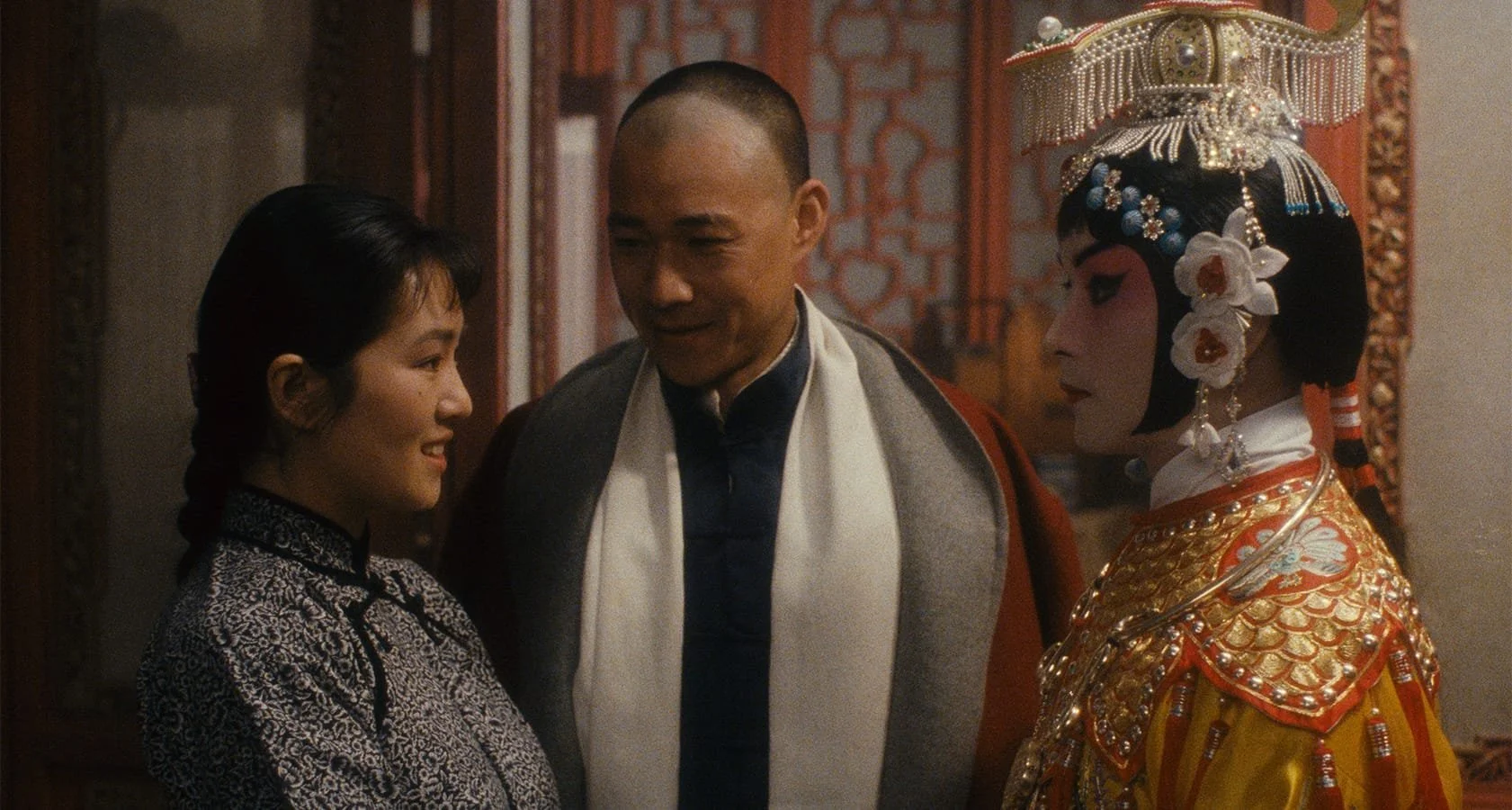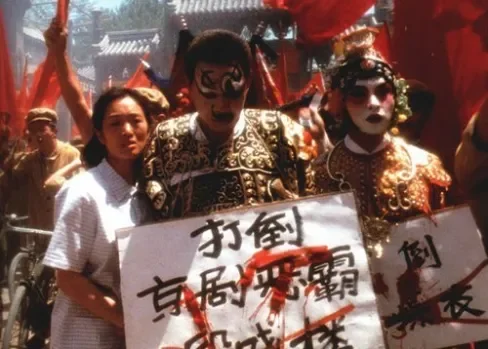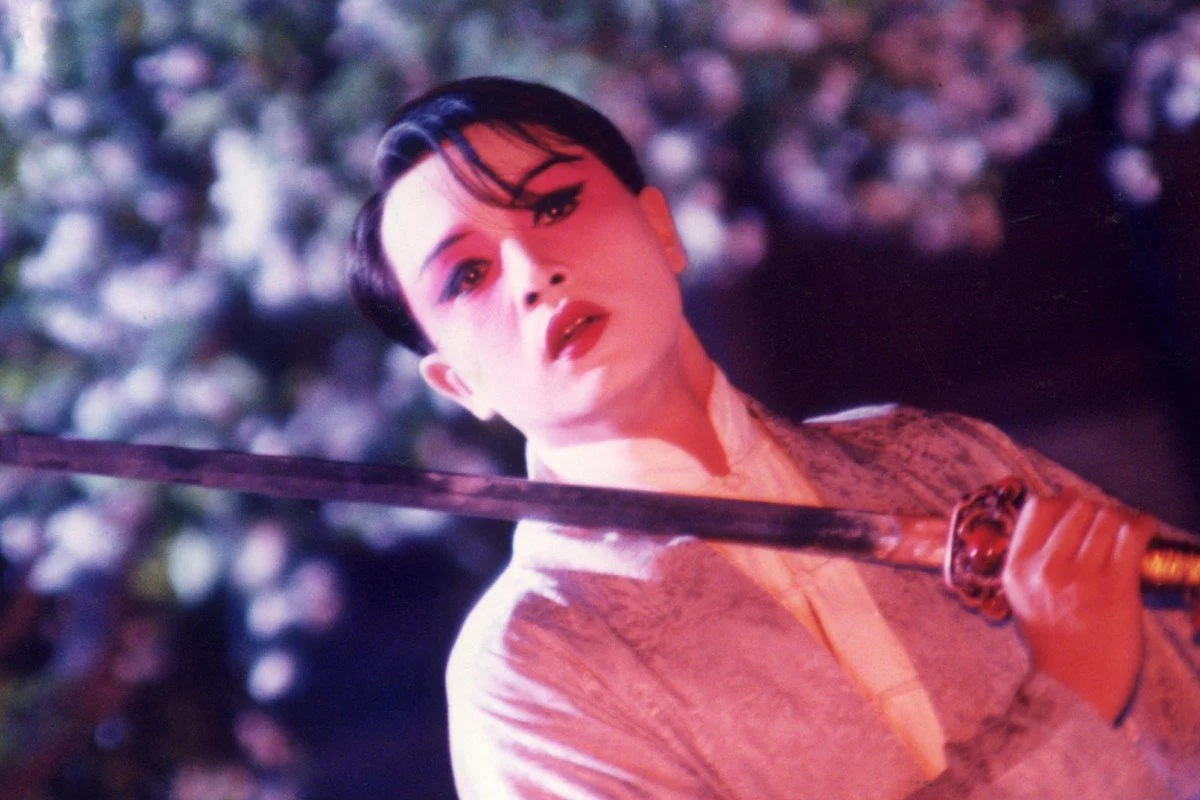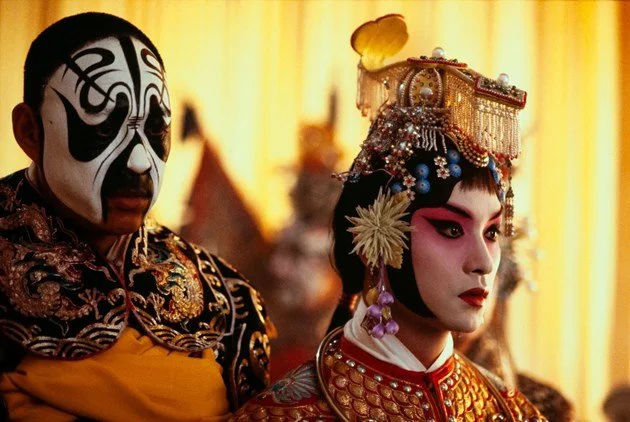PFF Review: Blurred Lines–Blending Theatre and Reality in Farewell My Concubine (1993)
Staff Writer Angelica Ng reviews the revolutionary epic Farewell My Concubine (1993), examining the beauty of theatre in the face of tragedy, tradition and love during a tumultuous period—brought to life by Leslie Cheung’s luminous performance.
In Farewell My Concubine (1993), a once-legendary Peking opera performer clings to the last vestiges of his beloved art, while his nation and fellow artists usher in a new age of modern prosperity…or not?
Over thirty years after its release, this iconic film will be screened at Oldham Theatre as part of Perspectives Film Festival (PFF), a student-led film festival run by undergraduates from NTU’s Wee Kim Wee School of Communications and Information. The theme for this year’s iteration of PFF is Tradition and Modernity, boasting a lineup of seven films that explore our understanding of how films and narratives evolve with time.
This arduous conflict between tradition and modernity forms a key facet of Farewell My Concubine. Art and war collide in director Chen Kaige’s magnum opus, intertwining classical Peking opera narratives with the violent, bloody birth of a nation.
The first Chinese-language film to win the Palme D’Or, this politically-charged film faced its own fair share of censorship at its time of release – it was removed from theatres merely two weeks after its premiere, with the government taking issue with its depictions of homosexuality, suicide, and political turmoil. However, the ban was met with international outcry following its Palme D’Or win, and a censored cut was re-released a year later. Despite these obstacles, Farewell My Concubine consistently ranks among the best Chinese films ever made, and it's easy to see why this truly revolutionary film continues to receive such praise.
The film chronicles the life of opera singer Cheng Dieyi. Opening with the traumatic tortuous opera training of his childhood, we follow his rise to fame as a highly sought-after performer during the Second Sino-Japanese War, and we continue to witness his dismal descent into addiction and persecution during the peak of Mao Zedong’s Cultural Revolution. The film is also underpinned by Dieyi’s unrequited love for Deng Xiaolou, his childhood friend and fellow opera performer, and the subsequent conflicts that arise with the arrival of Xiaolou’s wife Juxian.
It is a beautiful behemoth of a film – in the span of three jam-packed hours, it leaps and bounds across five decades of political turmoil in 20th-century China, while balancing the individual character arcs of the main cast against the background of Peking opera’s rise and fall. The film manages to foreground the struggles and evolution of each era simply by focusing on its two main characters, utilising masterfully built tension to raise the stakes at every turn and keep audiences engaged in the story. Additionally, even for audiences without a strong grasp of Chinese history or Peking opera tradition, the story is rarely confusing, grounding itself in enduring themes like love and rebellion that traverse cultural borders with ease.
In fact, perhaps one of the most fascinating aspects of the film is the interspersing of classic Peking opera narratives that serve to both advance the overarching plot, and to reflect the characters’ mental states – most evident as a representation of Dieyi and Xiaolou’s evolving relationship, with the stage being the only place where Dieyi can safely express his true feelings. Essentially, these stories within stories draw parallels between China’s ancient tales and contemporary anxieties. In many ways, the film is a love letter to the arts, focusing on Peking opera as an art form that seems simultaneously a precious relic of the past and an encapsulation of the modern day.
The mesmerising production design of Farewell My Concubine helps to further juxtapose the violence of the characters’ reality with the beauty of their art – bloodied silk costumes and smudged face paint produce a surreal visual dissonance, like taking characters from ancient mythology and throwing them into the midst of a cultural revolution as they struggle to keep up with the times.
Farewell My Concubine puts forth theatre as a microcosm of society, reflecting all its flaws, yet also serving as an escape in times of hardship. For both performers and audiences, art becomes a release for pain, a way for everyone – from military generals to the common man – to make sense of their world as it falls apart. Opera becomes a source of entertainment that blends familiar stories with refreshing spectacle, an awe-inspiring art that evokes audiences’ pride for their nation’s long history and vibrant culture, even in the midst of war and political struggle. “If you belong to the human race, you go to the opera,” declares the characters’ old opera master in one of the first scenes of the film, a line that decisively centres the film’s focus on opera intertwining with real life.
Dieyi and his troupe perform for every side of the conflict, blurring the lines between enemy and compatriot. Scattered through the film are shots of the troupe performing for uniformed soldiers in perfect formation, performing for audiences of both soldiers and civilians even as the opposing sides begin to brawl right in front of the stage, performing even as they are handcuffed and led away by military officers while still clad in full opera regalia. After all, the show must go on no matter what.
This wholehearted, obsessive devotion to opera and the arts is perhaps best exemplified in Dieyi’s character, played by Leslie Cheung. As an early queer icon in the Sinophone world, known for his androgynous performances and flamboyant characters, Cheung delivers a performance that’s a true highlight of this film.
In a story where the world is a stage and every character has a role to perform, Dieyi’s tragedy comes from losing himself in his art and rejecting the cruelty of his reality. From childhood, Dieyi is raised playing dan roles in traditional operas, assuming feminine characters in a time when women were not allowed onstage. Simultaneously, Xiaolou learns to play masculine jing roles, rising to fame alongside Dieyi through their performances as an onstage couple. Their signature opera is “Farewell My Concubine”, the tragedy of a heroic king facing imminent defeat from enemy forces, and his loyal concubine who chooses to commit suicide in a final act of devotion, rather than leave her king behind.
This blurring of lines between genders and sexualities haunts Dieyi for his entire life, as he battles with his unrequited love for Xiaolou. He gradually faces the harsh realisation that he has devoted his entire life to playing a character that never truly reflects him, imitating his role perfectly but never reaping the benefits – in this case, love from Xiaolou, the one person to show him kindness and comfort without any ulterior motives.
Cheung’s luminous performance as Dieyi gives the character a truly ethereal presence, as though he exists on a different plane of reality from everyone else — a parallel to Dieyi’s complete absorption into his performance. He drifts across the blurred lines between theatre and reality, immersing himself in a fictional world in which he can finally find solace and acceptance. In turns harshly cruel and deeply sympathetic, Cheung perfectly encapsulates Dieyi as a victim of circumstance, a character who never stood a chance to become his own person and find his footing in his tumultuous world.
At its heart, Farewell My Concubine is an age-old tale of love and devotion against insurmountable odds – for your people, for your art, for your nation. Perhaps most tragically, the film foreshadows its own ending right from the very beginning, revealing in no uncertain terms the fate of the king and the concubine in the titular opera. And yet, as we’re taken on this devastatingly beautiful journey across the decades, we continue to hope that just maybe, history won’t take its fated course this time.
It’s a truly unique approach to the themes of war and political strife, forming a wildly ambitious film that ends up hitting all the right notes. With opera taking centre stage, Farewell My Concubine shows us that art will always be relevant in the course of human history – through our darkest times and toughest conflicts, it finds a way to speak to us on an intimate level, helping us understand the parts of us we hide from the world. Whether you connect to the vibrant characters, the beauty of Peking opera, or the ever-relevant themes of historical evolution, Farewell My Concubine is absolutely worth a watch.
Check out the rest of PFF’s lineup here!
Images in this article are being used under Fair Use guidelines as part of Singapore's Copyright Act 2021





